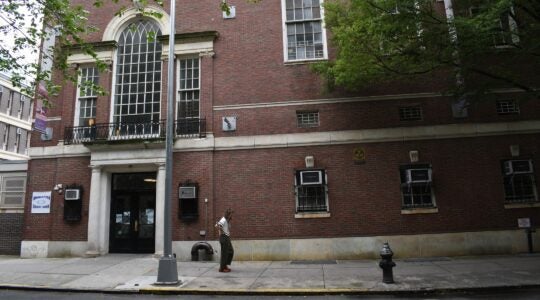Getting your Trinity Audio player ready...
Justice Brett Kavanaugh, who was confirmed to the U.S. Supreme Court after a fierce battle over his nomination, has joined his colleagues on the bench. As he begins this week to hear his first arguments as a newly minted associate justice, a look back at some of Kavanaugh’s rulings as a circuit court judge on issues central to the Jewish community — from abortion to affirmative action — provides some context as to how he might rule on the high court.
- In October 2017, Judge Kavanaugh issued an emphatic dissent in a widely publicized case involving a pregnant immigrant 17-year-old in federal custody requesting an elective abortion. The ruling — in which Kavanaugh argued that his colleagues were creating “a new right for unlawful immigrant minors in U.S. government detention to obtain immediate abortion on demand” — was the judge’s only major abortion decision on the federal bench in over a decade. But it cemented concerns of anti-abortion activists who fear a conservative majority on the Supreme Court will herald an era of increased restrictions on a woman’s constitutional right to seek the medical procedure — including a possible overturn of the seminal abortion-rights precedent established by Roe v. Wade.
- In the 2015 case Priests for Life v. United States Department of Health, Kavanaugh argued against the federal Health and Human Services that would penalize religious employers who don’t cover contraception unless they submit a certain form to their insurer or the Department of Health and Human Services. In a strongly worded dissent, he argued that the mandate could “substantially burden the religious organizations’ exercise of religion because the regulations require the organizations to take an action contrary to their sincere religious beliefs (submitting the form) or else pay significant monetary penalties.”
- In 2010’s Newdow v. Roberts, Kavanaugh rejected a prominent atheist’s objection to prayers said at the presidential inauguration and the line “so help me God” recited during the presidential oath. The case, argued in the D.C. District Court, was eventually dismissed.
- In response to 2014’s Hobby Lobby case, Kavanaugh suggested that the government has a “compelling interest” in allowing employees of a Christian organization to have access to contraception, despite the organization’s objection to covering the cost of said contraception. Many on the right criticized Kavanaugh for the suggestion.
- Last year, Kavanaugh has suggested that he would support increasing public funding to religious schools. In an essay for the American Enterprise Institute, he praised the late Chief Justice William Rehnquist’s efforts to reverse prior Supreme Court attempts at “erecting a strict wall of separation between church and state.
- In 1999, Kavanaugh penned an amicus brief on behalf of the Center for Equal Opportunity, a group that opposes race-based affirmative action in college admissions.
Jewish stories matter, and so does your support.
The New York Jewish Week brings you the stories behind the headlines, keeping you connected to Jewish life in New York. Help sustain the reporting you trust by donating today.




